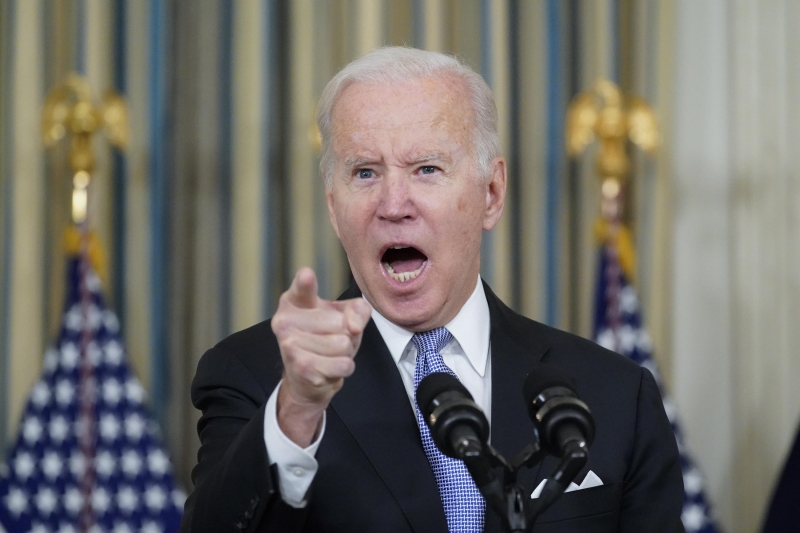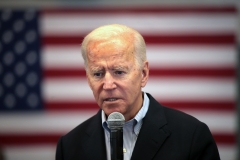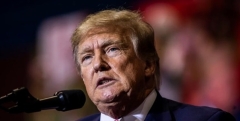Biden threatens Saudi Arabia with "consequences" for not submitting to US
Saudi Arabia-led oil alliance OPEC+ plans to cut oil production to boost prices. In response, the US now wants to review its relations with Saudi Arabia and has also announced "consequences" for the kingdom.
US President Joe Biden has announced the consequences for the kingdom in view of the planned extensive cut in oil production by the Saudi Arabian-led oil alliance OPEC+. "There will be some consequences for what they did to Russia," Biden told CNN.
"I'm not going to comment on what I'm considering and what I have in mind. But there will be consequences.”
With his comments, the US President reacted to the decision by OPEC+, which also includes Russia, to cut oil production by two million barrels a day (159 liters each) from November. Oil prices rose rapidly by around ten percent, which in turn benefits Moscow from the point of view of the USA, which can continue to finance the war in Ukraine with the profits.
Earlier, National Security Council communications director John Kirby said Biden was working to reevaluate US-Saudi Arabia relations. "This is a relationship that we must continue to reevaluate, that we must be willing to reconsider, and given OPEC's decision, I think it is at this point," Kirby told CNN.
According to Kirby, Biden now wants to discuss the next steps with the US Congress. "The President is obviously disappointed with OPEC+'s decision and will be ready to work with Congress as we consider what the right relationship with Saudi Arabia should be," Kirby said.
"He will be ready to start those talks immediately."
White House press secretary Karine Jean-Pierre said the policy is being reviewed. The United States "will be closely monitoring the situation over the coming weeks and months." At the same time, he accused Saudi Arabia of collaborating with Russia. "This is not the time to join forces with Russia," stressed Jean-Pierre. Allegations that the Kingdom firmly denies. The government of Riyadh wants to cut production for "purely economic" reasons, Saudi Foreign Minister Faisal bin Farhan Al Saud said in an interview with Al-Arabiya on Tuesday:
"OPEC+ members acted responsibly and made the right decision."
Just earlier this week, US Senate Foreign Affairs Committee President Robert Menéndez called for an immediate “freeze” on cooperation with the key Middle East ally in light of the recent OPEC+ decision. "The United States must immediately freeze all aspects of our cooperation with Saudi Arabia," Menendez said. "Including all arms sales and security cooperation beyond what is strictly necessary to defend United States personnel and interests."
Just a day later, Democratic Senator Richard Blumenthal and his party colleague Ro Khanna, a member of the House of Representatives, introduced a bill that would immediately halt all US arms sales to Saudi Arabia for a year. Agreements with US replacement and repair parts, services and logistics support would also be affected.
The United States can remember a long strategic partnership with the Kingdom, sealed after World War II, when Saudi Arabia received military protection in exchange for American access to oil. The ailing relationship intensified under Biden's predecessor, Donald Trump. According to research by the Stockholm International Peace Research Institute, Riyadh accounted for about a quarter of US arms exports during his tenure. The relations are "strategic" and contribute "to security and stability in the Middle East," said the Saudi embassy in Washington on Tuesday. The bilateral military cooperation serves "the interests of both countries".
Pressure on Biden mounts
With the upcoming US midterm elections in November, Biden is now under pressure to act. For one, as a candidate in the White House race, he promised to treat Saudi Arabia as a "rogue state" over the assassination of columnist Jamal Khashoggi. On the other hand, he recently reassured Americans who did not want oil and gas prices to rise.
But the OPEC+ decision is likely to push up gas prices in the US, which could significantly hurt the Democrats' chances in next month's US midterm elections. In the United States, the decision by the organization led by Saudi Arabia has been sharply criticized, particularly by the US Democrats.

Comments to this:








